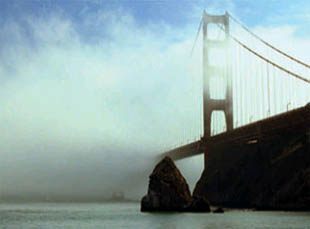By providing your information, you agree to our Terms of Use and our Privacy Policy. We use vendors that may also process your information to help provide our services. This site is protected by reCAPTCHA Enterprise and the Google Privacy Policy and Terms of Service apply.
11 Controversial Documentaries That Challenged the Status Quo

When “Going Clear: Scientology and the Prison of Belief” premiered at the 2015 Sundance Film Festival, the Church of Scientology set out on the defense, launching a Twitter account and taking out full-page advertisements in the New York Times and Los Angeles Times to denounce the film for its misrepresentation of the controversial religion. Earlier this year, similar controversy hit “The Hunting Ground,” a documentary that followed cases of on-campus sexual assault. Florida State University called “The Hunting Ground” filmmakers unethical for their handling of the situation and for not giving FSU enough time to respond to the allegations.
Controversial documentaries are nothing new, but with these two instances, and more questions arising about the methods that went into shooting HBO’s hit doc-series “The Jinx,” it seems like more and more documentaries that are challenging the status quo are being challenged by their subjects. Here are 11 other contemporary docs that captured a controversial subject.
“Going Clear” airs on HBO tonight at 8pm. “The Hunting Ground” is now playing in select theaters. “The Jinx” is available on HBO Go.
“Blackfish” (2013)
 “Blackfish” tells the story of Tilikum, the infamous orca whale who killed three individuals while in captivity. The documentary investigates SeaWorld’s practices in particular, and questions how wild animals can maintain their health and wellness while being exploited for entertainment purposes. By exposing Tilikum’s origin story and the dangerous confines he faced, director Gabriela Cowperthwaite showed audiences that their preconceived stereotypes are unfair and uninformed. Furthermore, “Blackfish” urged audiences to consider their own moral obligation to save and preserve endangered wildlife. The support of institutions like SeaWorld was largely criticized; SeaWorld itself suffered an estimated $15.9 million loss, according to CEO James Atchison, since the documentary was released in June 2013. In response to this financial blow, SeaWorld has had to actively combat negative press via a section on their webpage entitled “Truth About Blackfish,” and has increased funding to protect whale populations in addition to modifying their in-house training practices.
“Blackfish” tells the story of Tilikum, the infamous orca whale who killed three individuals while in captivity. The documentary investigates SeaWorld’s practices in particular, and questions how wild animals can maintain their health and wellness while being exploited for entertainment purposes. By exposing Tilikum’s origin story and the dangerous confines he faced, director Gabriela Cowperthwaite showed audiences that their preconceived stereotypes are unfair and uninformed. Furthermore, “Blackfish” urged audiences to consider their own moral obligation to save and preserve endangered wildlife. The support of institutions like SeaWorld was largely criticized; SeaWorld itself suffered an estimated $15.9 million loss, according to CEO James Atchison, since the documentary was released in June 2013. In response to this financial blow, SeaWorld has had to actively combat negative press via a section on their webpage entitled “Truth About Blackfish,” and has increased funding to protect whale populations in addition to modifying their in-house training practices.
READ MORE: ‘Blackfish’ Backlash Hurts SeaWorld’s Bottom Line
“Bowling for Columbine” (2002)
 “Bowling for Columbine” is Michael Moore’s 2002
“Bowling for Columbine” is Michael Moore’s 2002
ode to the lives lost during the Columbine High School Massacre of 1999.
By examining the environment and motivations of teenage gunmen Eric Harris and Dylan Klebold, Moore ridicules the government’s role in
enabling their demise. Moreover, Moore distinctly names the United States’ lax guns laws as the ultimate contributor to the violent
atmosphere we have come to live in. “Bowling for Columbine” claims that
our negligent and ignorant government has influenced Americans to get
comfortable with violence. As a political and social issue that still plagues this country more
than ten years later, Moore’s film certainly remains controversial. Yet,
it is widely thought to be a masterful work, winning the Academy Award
for Best Documentary Feature in 2003.
“Capturing the Friedmans” (2003)
 Originally preparing a documentary about children’s birthday party
Originally preparing a documentary about children’s birthday party
entertainers, director Andrew Jarecki (“The Jinx”) changed course when he discovered that
one of his subjects, professional clown Dave Friedman, was the son and brother
of the subjects of a high-profile child sex abuse trial. The ensuing
documentary, “Capturing the Friedmans,” caused a stir when it premiered (and
won the Grand Jury Prize) at Sundance due to allegations of
Jarecki getting too close to his subjects. Critically loved and eventually nominated for an Oscar, “Capturing
the Friedmans” gives viewers an almost uncomfortably close seat to watch the
breakdown of an average, all-American family.
Many took issue with the stance that the existence of abuse was
doubtful and the compassion shown toward the Friedman family, particularly
Arthur and Jesse, the two members accused of abusing children.
READ MORE: Andrew Jarecki Reflects On ‘Capturing the Friedmans’ and Why It Needs a Sequel
“Catfish” (2010)
 Internet dating has never been the same. Most know of the popular MTV series “Catfish: The TV Show,” but before that, Nev Schulman fell for a woman through Facebook who wasn’t who she claimed to be. And so, “catfishing” was born, where a person poses as someone else online to reel in an unsuspecting individual for an online romantic relationship. The film begs the question of how much you can really love someone you know nothing about, but think you do.
Internet dating has never been the same. Most know of the popular MTV series “Catfish: The TV Show,” but before that, Nev Schulman fell for a woman through Facebook who wasn’t who she claimed to be. And so, “catfishing” was born, where a person poses as someone else online to reel in an unsuspecting individual for an online romantic relationship. The film begs the question of how much you can really love someone you know nothing about, but think you do.
READ MORE: SUNDANCEdaily | Controversial Doc “Catfish” Divides Sundance
“CITIZENFOUR” (2014)
 Fresh off of an Oscar for Best Documentary Feature, “CITIZENFOUR” was directed by Laura Poitras, who had received mysterious emails from someone going by the name Citizen Four in January 2013. The emails claimed to have evidence of an NSA conspiracy. We now know Citizen Four as Edward Snowden, and the film follows Poitras and reporters Glenn Greenwald and Ewen MacAskill as they meet with Snowden and uncover one of the biggest secrets in U.S. history. Snowden is now hiding out in Russia, and would face charges of treason should he ever return to the United States. Controversial? Just a tad.
Fresh off of an Oscar for Best Documentary Feature, “CITIZENFOUR” was directed by Laura Poitras, who had received mysterious emails from someone going by the name Citizen Four in January 2013. The emails claimed to have evidence of an NSA conspiracy. We now know Citizen Four as Edward Snowden, and the film follows Poitras and reporters Glenn Greenwald and Ewen MacAskill as they meet with Snowden and uncover one of the biggest secrets in U.S. history. Snowden is now hiding out in Russia, and would face charges of treason should he ever return to the United States. Controversial? Just a tad.
READ MORE: Review: Edward Snowden Doc ‘CITIZENFOUR’ is a Bracing Look at NSA Whistleblower’s Impact
“Fahrenheit 9/11” (2004)
 Michael Moore’s 2004 “Fahrenheit 9/11” directly criticizes former President George W. Bush, his presidency, and specifically, the War on Terror. Through archival news footage, Moore stipulates that corporate America drove the nation into war for selfish reasons, and as a result, should be brought to justice; at the very least, Moore outwardly states that these greedy one-percenters should be deplored. The greater ramification of this film was the controversial notion that the U.S. government does not act with the people’s interests in mind, and should therefore be totally restructured. Fueling liberal thinking along, it generated $222 million worldwide and is largely deemed to be the highest grossing documentary film of all time. Conversely, the film was met with an immense amount of disapproval not only for its strong and outlandish statements, but also for the validity of its evidence.
Michael Moore’s 2004 “Fahrenheit 9/11” directly criticizes former President George W. Bush, his presidency, and specifically, the War on Terror. Through archival news footage, Moore stipulates that corporate America drove the nation into war for selfish reasons, and as a result, should be brought to justice; at the very least, Moore outwardly states that these greedy one-percenters should be deplored. The greater ramification of this film was the controversial notion that the U.S. government does not act with the people’s interests in mind, and should therefore be totally restructured. Fueling liberal thinking along, it generated $222 million worldwide and is largely deemed to be the highest grossing documentary film of all time. Conversely, the film was met with an immense amount of disapproval not only for its strong and outlandish statements, but also for the validity of its evidence.
READ MORE: Decade: Michael Moore on “Fahrenheit 9/11”
“Jesus Camp” (2006)
 Heidi Ewing and Rachel Grady’s “Jesus Camp” is the
Heidi Ewing and Rachel Grady’s “Jesus Camp” is the
radical, eye-opening 2006 documentary about the evangelical Christian
community in America’s “Bible Belt.” Through dual-sided interviews,
archival footage and investigatory shots, “Jesus Camp” does not set out
to scare nor convert audiences, it merely exposes the world to an
intense culture of devoted people. The film touches on an assortment
of difficult topics such as abortion rights, global warming, gay
equality and the Christian church’s exploitation of its members through
entertainment and media. Ultimately the film deals with individual pursuits of happiness in today’s world, and the social and political
consequences that come with it. Nominated for Best Documentary Feature at
the 79th Academy Awards, “Jesus Camp” is upheld as noteworthy film for
being simultaneously enraging and empathetic.
“Mea Maxima Culpa: Silence in the House of God” (2012)
 “Mea Maxima Culpa: Silence in the House of God” is Alex Gibney’s (“Going Clear”) deep exploration into pedophilia in the Catholic Church; a charged issue that
“Mea Maxima Culpa: Silence in the House of God” is Alex Gibney’s (“Going Clear”) deep exploration into pedophilia in the Catholic Church; a charged issue that
reaches from the St. John School for the Deaf in Milwaukee, Wisconsin, all the way to
Ireland and The Vatican. Through interviews with journalists, scholars and more, Gibney
paints a stirring picture of the abuse of power. Gibney’s interviews with the
victims are meditative and intimate, which makes everything they share seem
like more of a dirty secret. Roger Ebert said that, “To
someone who was raised and educated in the Catholic school system, as I was, a
film like this inspires shock and outrage.” The film raised many uncomfortable questions about who really
knows what and who really holds power.
“Super Size Me” (2004)
 Morgan Spurlock came onto the scene with his 2004 fast food documentary, “Super Size Me,” and to this day it’s the most impactful look at the industry that so many consume every day. The film follows Spurlock as he indulges in McDonald’s (and only McDonald’s) for an entire month to test the effects it would have on his health and mentality. The results are jarring, as Spurlock undergoes both a physical (he gained 25 pounds) and emotional change over the time period. It made you think twice about the food you’re eating and brought a ton of unwelcome attention (on their end) to the restaurant chain. In the end, the film led to McDonald’s abolishment of their “Super Sized” menu items.
Morgan Spurlock came onto the scene with his 2004 fast food documentary, “Super Size Me,” and to this day it’s the most impactful look at the industry that so many consume every day. The film follows Spurlock as he indulges in McDonald’s (and only McDonald’s) for an entire month to test the effects it would have on his health and mentality. The results are jarring, as Spurlock undergoes both a physical (he gained 25 pounds) and emotional change over the time period. It made you think twice about the food you’re eating and brought a ton of unwelcome attention (on their end) to the restaurant chain. In the end, the film led to McDonald’s abolishment of their “Super Sized” menu items.
READ MORE: Morgan Spurlock on ‘Inside Man’ and the Continuing Impact of ‘Super Size Me’
“The Act of Killing” (2012)
 Directed by Joshua Oppenheimer, “The Act of Killing” is a 2012 documentary about the Indonesian genocide of 1956-66. The documentary delves into the history and ramifications of the murders of 500,000 suspected anti-communists by focusing primarily on gangster, Anwar Congo. Revered to this day as the so-called father of the right-wing paramilitary, Pemuda Pancasila, Anwar admits to and tries to justify being the man responsible for much of the genocide. Largely thought of as a masterpiece for shedding light on a forgotten holocaust, “The Act of Killing” was met with little criticism outside of the Indonesian government. However, upon receiving the 2014 BAFTA Award for Best Documentary, Oppenheimer condemned both the United States and United Kingdom for ignoring the genocide back in the ’60s and for forgetting to commemorate the lives lost to this day.
Directed by Joshua Oppenheimer, “The Act of Killing” is a 2012 documentary about the Indonesian genocide of 1956-66. The documentary delves into the history and ramifications of the murders of 500,000 suspected anti-communists by focusing primarily on gangster, Anwar Congo. Revered to this day as the so-called father of the right-wing paramilitary, Pemuda Pancasila, Anwar admits to and tries to justify being the man responsible for much of the genocide. Largely thought of as a masterpiece for shedding light on a forgotten holocaust, “The Act of Killing” was met with little criticism outside of the Indonesian government. However, upon receiving the 2014 BAFTA Award for Best Documentary, Oppenheimer condemned both the United States and United Kingdom for ignoring the genocide back in the ’60s and for forgetting to commemorate the lives lost to this day.
“The Bridge” (2006)
 Eric Steel’s harrowing documentary about suicides on the Golden
Eric Steel’s harrowing documentary about suicides on the Golden
Gate Bridge stirred up plenty of controversy when it premiered at the Tribeca
Film Festival in 2006. Based on a New Yorker article by Tad Friend, the documentary shows several real jumpers leaping
from the bridge to their deaths and into the icy water below. Steel and his crew filmed the Golden Gate Bridge almost
continuously during daylight hours for all of 2004 and recorded 23 of the 24 known suicides off the bridge in that year. Steel
and his crew have come under fire for not stopping suicide attempts, but Steel
claims his crew intervened when they could. More controversy followed the film’s release after bridge
officials said Steel mislead them about his intentions when he applied for
filming permits, writing in his application that he intended “to capture the
powerful, spectacular intersection of monument and nature that takes place
every day at the Golden Gate Bridge.” In response to these accusations, Steel said he lied on his permit application because he knew he would have
been rejected if he revealed the true nature of his project and to discourage
anyone from trying to immortalize his or her death in his film. Additionally, Steel interviewed the suicide victims’ relatives and
friends, but did not inform them that he had footage of their loved ones’ deaths. The film received mostly positive reviews but was condemned for
its grim subject matter, with The Guardian’s Andrew Pulver saying it “could be the most morally loathsome film ever made.”
Casey Cipriani, Travis Clark, Elle Leonsis and Helen Carefoot contributed to this post.
By providing your information, you agree to our Terms of Use and our Privacy Policy. We use vendors that may also process your information to help provide our services. This site is protected by reCAPTCHA Enterprise and the Google Privacy Policy and Terms of Service apply.


















